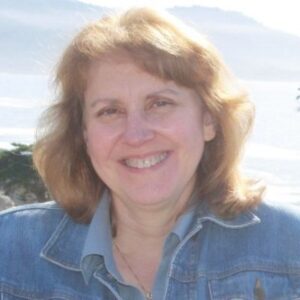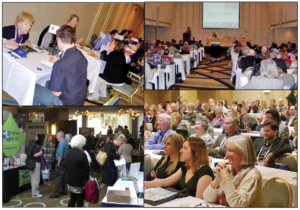
by Tammy Ditmore
That was the underlying message of speaker after speaker at the Independent Book Publishing Association’s Publishing University 2015. In large-group presentations, small-group breakout sessions, and one-on-one conversations, the stark realities of successful book publishing were revealed. Although topics varied widely—book sales analytics, printing options, copyright laws, marketing options, distribution contracts—the ultimate lesson remained the same: successful book publishing requires knowledge, planning, and hard work.
 It’s popular these days to say that anyone can publish a book. And it’s true that almost anyone can write and produce a book. But as Jim Milliot, editorial director of Publishers Weekly, reminded the PubU audience, “It’s always been easier to publish than find readers.”
It’s popular these days to say that anyone can publish a book. And it’s true that almost anyone can write and produce a book. But as Jim Milliot, editorial director of Publishers Weekly, reminded the PubU audience, “It’s always been easier to publish than find readers.”
In the same session, titled “Indie Publishing: Who Holds the Power?” Kelly Gallagher, vice president of content acquisition of Ingram Content Group, noted, “Anybody can hold the power. What’s required of an indie publisher is so much more. What’s required is the ability to have relationships with authors. AND be able to sell the books.”
Peter Hildick-Smith of Codex-Group opened Pub U 2015 with a session examining “How Books Sell.” Breaking out brightly colored bar charts and graphs, he explained that his organization tracks at least 38 major strategies for how readers discover books and noted how quickly those avenues have been changing. In 2010, 32% of book sales came from stores; in 2014, that number had fallen to 17%.
According to Hildick-Smith, there are three pillars to book sales: discovery, conversion, and availability. Too many people, he noted, equate discovery with sales; however, discovery is just the first step in the process. In order for a book to sell, a potential reader must discover it, decide to buy it (conversion), and be able to find it in a convenient channel. If any step is missing, books will not sell.
After describing such sobering realities in the first two general sessions, the experts at Pub U set out to arm authors and indie publishers with the knowledge that would help them overcome such challenges. Attendees could sign up to speak to industry experts in 15-minute, one-on-one conversations. Or they could choose from dozens of small-group sessions, where speakers offered advice on a wide array of topics, including “How to Be a Profitable One-Person Publishing Company,” “Working with Independent Bookstores to Reach Your Readers,” “High-Quality eBooks on a Budget,” “A Complete Guide to the Book Contract,” and “Book Metadata from Head to Toe.”
Often, experts reminded would-be booksellers that there are many routes to success, even if those routes aren’t easy ones. In a session on “Profitable Sales Beyond Bookstores and Libraries,” Sharon Castlen of Integrated Book Marketing and Brian Jud of the Association of Publishing for Special Sales offered tips on getting books placed in zoos, doctors’ offices, college graduation packages, and more. Jud noted that the key to success in this kind of marketing is to “stop selling your book and start selling the content.” Even so, Castlen warned that the best lesson to learn when marketing books “is delayed gratification.”
Pub U newcomers encountered new vocabulary and new concepts in almost every session. “The publishing industry is counter-intuitive to any other industry out there,” Jared Kuritz, managing partner for Strategies, told a session on “Business Modeling for Indie Published Authors.” The audience laughed, but many were also nodding in agreement as Kuritz tried to explain the intricacies of distribution and fulfillment agreements.
Although there is no one path to success for every book, speakers and attendees at Pub U agreed that finding a community is a vital first step for all authors and small publishers. Rana DiOrio of Little Pickle Press reminded the audience there’s “strength in numbers” and described how she joined IBPA shortly after founding her small press. Gallagher, the Publishers Weekly executive, agreed, noting that “a community makes all the difference.”
IBPA is one such community. WPN, an affiliate member of IBPA, is another. And in this difficult industry, writers and publishers need all the help they can get.
IBPA, Pub U FACTS
Independent Book Publishers Association is a not-for-profit membership organization that has served the indie publishing community since 1983. With nearly 3,000 members, IBPA is the largest publishing trade association in the U.S.
Publishing University 2015 was held April 10 and 11 in Austin, Texas, where a sell-out crowd of nearly 300 people attended. In addition to educational sessions, the event included the 27th annual IBPA Benjamin Franklin Book Awards, honoring winners in more than 50 categories. Audio recordings of individual Pub U sessions from this year and several previous years can be ordered online at: http://vwtapes.com/ibpa2015.aspx.
Tammy Ditmore, of eDitmore Editorial Services, was awarded an affiliate scholarship through WPN to attend Pub U 2015.
